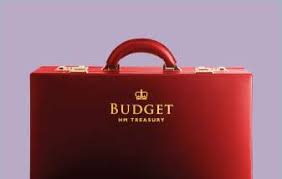Chancellor Rachel Reeves started her Budget speech by saying the country voted for change on 4 July. As a result, the Labour government could now “fix the foundations”.
The way to ensure growth was to “invest, invest, invest”, she added. In total, the Budget will raise taxes by £40bn.
The key points from the Budget were:
Business taxes:
“We are asking businesses to contribute more,“ Rachel Reeves said.
Employers’ National Insurance contributions will increase from 13.8% to 15% in April 2025 to raise £25bn.
The main Corporation Tax rate paid on taxable profits over £250,000 remains at 25%,
There will be a 40% relief on business rates for retail, hospitality and leisure businesses.
The previously announced increases in the National Minimum Wage were confirmed.
A Covid corruption commissioner will shortly be appointed.
Existing incentives for EVs in company car tax to be maintained from 2028.
Economic outlook:
Inflation is forecast by the OBR (Office for Budget Responsibility) to be 2.5% this year and 2.6% next year. Then 2.3%, 2.1%, 2.1% and 2% in subsequent years. She says the Budget will raise taxes by £40bn.
Real GDP growth will be 1.1% this year, 2.0% next year, 1.8% in 2026, 1.5% in 2027, 1.5% in 2028, and 1.6% in 2029.
Government borrowing will fall from 4.5% of GDP this year to 2.1% by the end of the forecast.
Travel and transport:
Fuel duty has been frozen. “There will be no higher taxes at the petrol pumps next year,” said the Chancellor.
There will be a £500m increase in road maintenance budget next year to meet commitment to repair an additional 1m potholes a year.
Air Passenger Duty will rise in 2016 by £2 for short-haul economy flights and £12 for long-haul ones, with a 50% increase in for private jets.
Personal taxes:
“Working people will not see an increase in taxes in their payslips,” she said.
There was no increase in Income Tax thresholds.
The lower rate of Capital Gains Tax (CGT) was increased from 10% to 18% and the higher rate from 20% to 24%. This will still be the lowest rate for any European G7 country, the Chancellor added.
The threshold for Inheritance Tax was frozen to 2030, allowing £325,000 to be inherited tax free.
Non-dom tax regime to be abolished next April and replaced by a new residency scheme.
Government spending:
£22bn increase in NHS day-to-day budget and capital spending by £3.1bn.
Education will receive £6.7bn of capital investment, a 19% real-terms increase, which includes £1.4bn to rebuild more than 500 schools in the greatest need.
£5bn to increase the supply of new homes. Right-to-buy discounts to be reduced and councils will be allowed to retain the receipts.
MoD spending to rise by £2.9bn and the government will invest in UK industry, including nearly £1bn for the aerospace sector, £2bn in automotive to support electric vehicles, and £500m for life sciences, with additional funding for the TV industry.
There will be more funding for regional mayors and around 100 new planning officers will be appointed.
The government wants to make Britain a clean energy superpower, with funding for 11 new green energy projects and establishment of GB Energy.
Other measures:
£11.8bn fund for contaminated blood scandal victims and £1.8bn for victims of Post Office Horizon scandal.
The government will “go after” the promoters of tax avoidance schemes.
Cut in duty paid on draught beer equivalent to 1p off the price of a pint in a pub. Alcohol duty rates on non-draught products to go up in line with RPI from next February.
Tobacco taxes will rise by 2% above RPI.
VAT will be introduced on private school fees from next January.




















